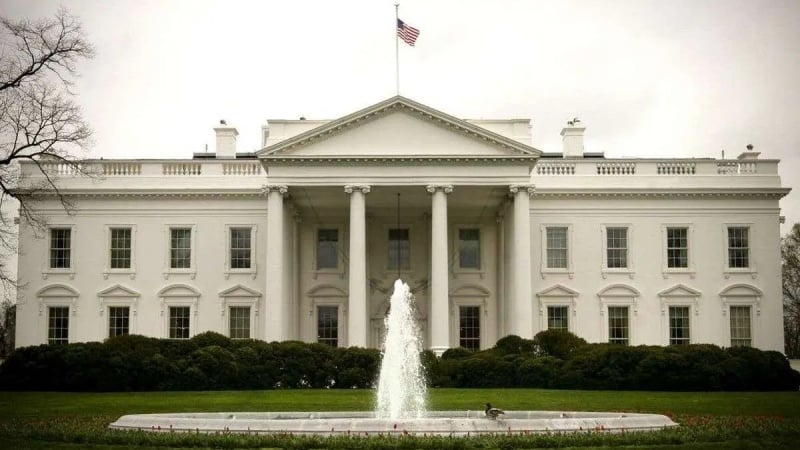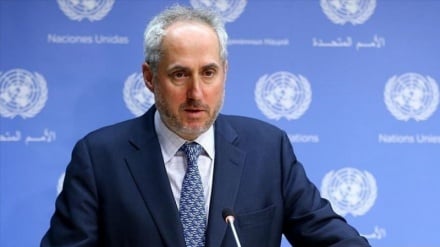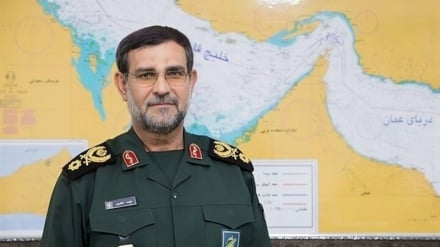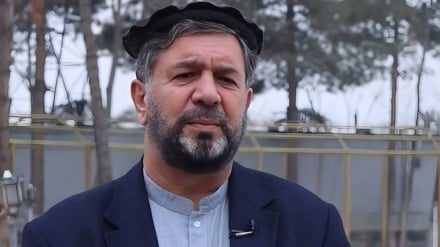How long will the United States remain committed to international cooperation?
-

The White House
Pars Today – As the death toll from starvation in Gaza breaks new records daily, the international community, instead of formally declaring a "famine" in the region, remains mired in the swamp of political considerations.
Moncef Khane, in a recent article on Al Jazeera English, wrote: In a world witnessing remarkable advancements in food security, the image of Alaa al-Najjar, a Palestinian mother weeping over the lifeless body of her three-month-old son Yahya, who died of starvation, challenges the conscience of humanity. According to Pars Today, Alaa al-Najjar is just one of hundreds of Palestinian mothers in besieged Gaza mourning children who have fallen victim to deliberate policies of starvation.
On July 9, 2024, at least 11 experts under the UN Human Rights Council issued an urgent warning about famine in Gaza. Their statement read: "We declare that Israel’s deliberate and targeted campaign to starve the Palestinian people constitutes a form of genocidal violence and has led to famine across Gaza. We call on the international community to prioritize the delivery of humanitarian aid by land through any necessary means, end the blockade of Gaza, and establish a ceasefire."
Among these experts were Michael Fakhri, the UN Special Rapporteur on the right to food, Pedro Arrojo-Agudo, the UN Special Rapporteur on safe drinking water and sanitation, and Francesca Albanese, the UN Special Rapporteur on human rights in the occupied Palestinian territories.
Defining "famine" and its declaration criteria
In 2004, the Food and Agriculture Organization (FAO) established the Integrated Food Security Phase Classification (IPC), a five-stage quantitative scale to assess food insecurity in a given population. The goal was to trigger collective action when food insecurity is identified and prevent it from reaching Phase 5 (Famine). For 20 years, the FAO, the World Food Programme (WFP), and their partners have used the IPC as a scientific, data-driven tool.
Quantitative IPC criteria for declaring famine:
- At least 20% of households in an area face extreme food shortages with limited coping capacity.
- Acute malnutrition rates in children exceed 30%.
- The mortality rate surpasses 2 deaths per 10,000 people per day.
When these three criteria are met, a famine must be declared. While this declaration does not create legal obligations, it serves as a crucial political signal to compel international humanitarian action.
If experts concluded over a year ago that famine exists in besieged Gaza, why have UN authorities waited until July of this year (after four months of blockade) to acknowledge it?
In an era of real-time information, the deadly reality of starvation in Gaza is undeniable. Images of emaciated bodies, reminiscent of Nazi concentration camps, paint a horrifying picture of Gaza under Israeli siege. Yet, despite warnings from UNRWA on July 20 about one million children in Gaza facing starvation, no official famine declaration has been made.
Political considerations override professional duties
In the current US-influenced UN culture, political calculations often overshadow professional ethics. Officials know what the right course of action is (or at least hope to), but fear repercussions for their careers. Personal attacks by the US government against Karim Khan (ICC Prosecutor) and Francesca Albanese (UN Special Rapporteur) demonstrate the risks of these roles. Albanese, who works unpaid and voluntarily, deserves even greater admiration for her courage.
UN Secretary-General António Guterres faces even more complex calculations, including threats from some powerful nations to cut funding. But now that the US Congress has passed an unprecedented bill to defund the UN, justifying inaction to avoid angering Washington is no longer acceptable.
Gaza blockade as a war crime
Under the Rome Statute of the ICC, starving civilians in armed conflict constitutes a war crime. The complete blockade of Gaza since March 2, which has led to civilian starvation (especially among infants and children), falls squarely under Article 8 of the Statute—particularly as it results from a deliberate, months-long policy of obstructing humanitarian aid.
In this man-made famine, Palestinians are dying in global silence while tons of food rot at Egypt’s border. Israeli forces and foreign mercenaries hired by the "Gaza Humanitarian Foundation" have killed over 900 Palestinians at aid distribution points. According to the WFP, around 90,000 Palestinian children and women in Gaza require urgent treatment for malnutrition. The Palestinian Health Ministry reported that 19 people died of starvation on July 20 alone, with conditions expected to worsen.
Beyond the statistics
Behind every number in this report lies a human story—like that of Yahya, the three-month-old Palestinian baby in Gaza who never knew a normal life. The international community now faces a difficult choice: continue silent complicity in this humanitarian catastrophe or take decisive action to end this inhumane blockade.


